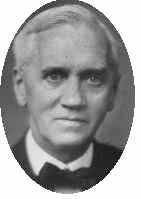SCOTTISH HEROES: Sir Alexander Fleming
 It is hard to believe that one of the greatest medical discoveries of all time came about because a relatively unknown microbiologist did not tidy up his laboratory prior to going on holiday. It is hard to believe that one of the greatest medical discoveries of all time came about because a relatively unknown microbiologist did not tidy up his laboratory prior to going on holiday.
On his return from his break he discovered that some mould had formed on the now defunct pre-holiday experiment. He saw that the mould, which had developed purely by accident on a culture plate, had created a bacteria free circle around itself. He was inspired to experiment further and over the course of the next eight months found a mould culture that prevented growth of bacteria.
The microbiologist was Alexander Fleming and he named the active substance penicillin.
Fleming was born at Lochfield near Darvel in Ayrshire, Scotland, on August 6th, 1881. In 1906 he qualified with distinction from St Mary's Medical School, London University. Early in his medical career he became interested in the natural bacterial action of the blood and in antiseptics. It was during his work in this area that the "accident" took place.
He wrote a paper, which suggested that the substance, penicillin, could be used as a tropical anti-infectant. This was met with considerable scepticism by his colleagues. He stopped his work on penicillin and concentrated his efforts on matters he considered to be of more medical importance.
At Oxford University in 1939 Professor Howard Flory was conducting experiments with antibacterial substances and there effects on treating wounds caused by bombing. A chemist on his staff, Abraham Chain, managed to isolate pure penicillin which allowed his fellow researchers to use the substance more freely.
Research continued and by the time of the Korean War the use of penicillin became widespread reducing the number of fatalities, particularly from gun shot wounds to the stomach.
Fleming and Chain were knighted and Flory was made a lord. All three shared the Nobel Prize. As a result of their work life expectancy grew substantially and their successors went on to develop the whole science of anti-biotics.
|



